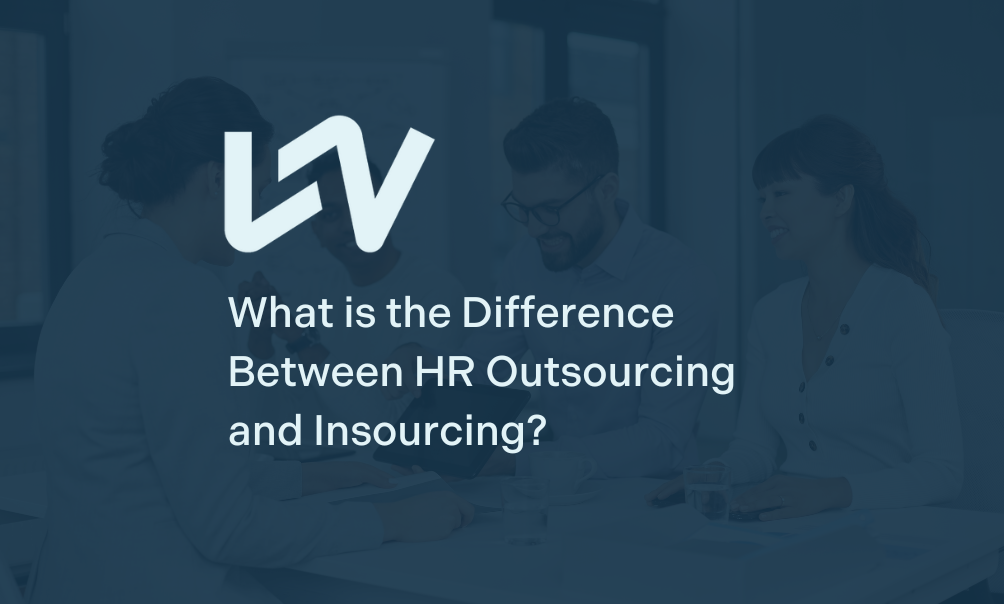
When it comes to managing human resources (HR) functions, businesses have two primary options: outsourcing and insourcing. While both approaches aim to address HR needs, they differ in terms of execution and resource allocation. In this blog, we will explore the differences between HR outsourcing and insourcing to help businesses understand which approach may be best suited for their organisation.
HR outsourcing involves delegating some or all HR functions to external HR service providers, such as HR consulting firms or professional employer organisations. But, not all of these options are specialist in nature, so a business must be quite sure who/what they’re dealing with. For HR outsourcing to be of any real value, organisations must be partnering with HR outsourcing providers with genuine HR expertise – only these options remove the need to maintain an internal HR department.
Professional employer organisations and associations provide a membership model with access to advice, tips, and resources like templates. They may offer more specialised services for additional costs and that may often mean outsourcing your needs to law firms (for example), but they’re almost never a specialist service provider.
The key characteristics of HR outsourcing include:
HR outsourcing allows organisations to tap into the expertise of professionals who specialise in various HR domains. These experts possess extensive knowledge of HR best practices, compliance regulations, and industry trends. By outsourcing HR, businesses can ensure that their HR functions are handled by experienced professionals who stay updated with the latest developments in the field.
Outsourcing HR functions can lead to significant cost savings for organisations. Instead of investing in building and maintaining an internal HR team, businesses can model their HR services to deliver 100% value at a much lower cost. This eliminates expenses related to salaries, benefits, training, and HR infrastructure. Additionally, HR outsourcing providers streamline processes, leverage technology, and implement efficient systems, enhancing overall operational efficiency – they don’t get caught up in the politics of the organisation which can often take away much of internal HR team time and effectiveness.
HR outsourcing offers scalability and flexibility, particularly beneficial for growing or fluctuating businesses. External HR service providers can quickly adapt their support levels to align with changing needs. Whether it involves managing a surge in recruitment or downsizing during lean periods, outsourcing HR enables organisations to scale HR operations accordingly, avoiding the challenges of managing an internal HR team – who by their very nature, are often difficult to navigate such issues with, when personally impacted.
HR insourcing refers to the practice of managing HR functions internally, with dedicated HR staff employed directly by the organisation. Insourcing involves building and maintaining an in-house HR department to handle various HR responsibilities. This is often seen as a luxury by smaller and medium sized businesses, as the cost of hiring competent HR professionals is high, and the business must be established in such a manner that HR people can operate commercially and strategically, rather than transactionally.
You should expect a capable HR function to cost a business at least $500,000 per annum in salaries, systems, and expenses, whereas outsourcing could be as low as 1/10th of this outlay.
The key characteristics of HR insourcing include:
With HR insourcing, organisations have direct control over their HR functions. They have the ability to shape HR policies, procedures, and practices according to their specific needs and organisational culture. Insourcing may allow for greater customisation and alignment of HR strategies with overall business objectives.
Insourcing enables HR staff to develop a deep understanding of the organisation’s unique dynamics, culture, and workforce. They can tailor HR initiatives, programs, and policies to meet the specific needs and goals of the organisation. This level of organisation-specific knowledge can contribute to a better employee experience and alignment of HR practices with the overall business strategy.
With an in-house HR team, organisations have immediate access to HR professionals who are readily available for employee inquiries, concerns, and support. In-house HR staff can foster direct relationships with employees, enabling effective communication, and timely resolution of HR-related issues.
Insourcing HR gives organisations direct control over the allocation of resources and budgeting for HR functions. It allows for more detailed financial planning and forecasting of HR-related expenses. However, it is important to note that building and maintaining an in-house HR team can be costly, particularly for smaller organisations.
The choice between HR outsourcing and insourcing depends on the specific needs, goals, and resources of each organisation. HR outsourcing provides access to specialised expertise, cost savings, scalability, and efficiency. It is particularly beneficial for organisations that want to focus on core competencies, reduce costs, or require specialised HR knowledge. On the other hand, HR insourcing offers direct control, organisation-specific knowledge, and immediate access to HR staff. It is suitable for organisations that prioritise in-house control over HR functions and have the resources to build and maintain an internal HR team.
Ultimately, organisations should carefully evaluate their unique requirements, consider the pros and cons of each approach, and choose the option that aligns best with their overall business strategy and HR objectives.

